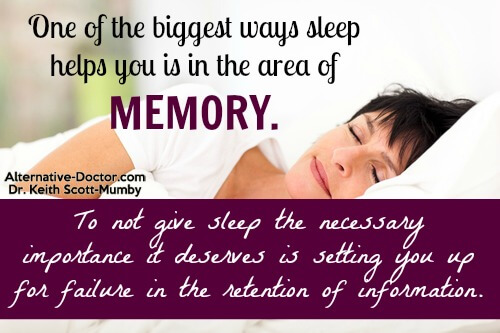I talk about sleep so often because I can’t stress enough how important it is to your health and your life. Sleep deprivation is considered a form of torture and results in serious physical and psychological damage over time. While you might not experience lack of sleep to this extreme, a long-term habit of “not getting enough” can have the same effect.
When it comes to tips for learning, self-growth, and fostering a positive life, sleep cannot be left out of the equation. Women have a 50% higher rate of sleep deprivation than their male counterparts but it’s a growing problem that crosses gender, race, and economic lines.
Everyone Has Rhythm
Biological “rhythms” (ultradian, circadian, and infradian) regulate critical functions in your body. These rhythms begin before you’re born and last throughout your entire lifetime. They not only determine sleep cycles but heart rate, digestion, hormonal balance, metabolism, mood, and fertility.
One of the biggest ways sleep helps you is in the area of memory. College students cramming for exams (and losing a lot of sleep) are actually working against their success. When you sleep, your brain “cements” what you’ve seen, heard, or learned throughout the day. Think of it like a remote backup for whatever you’ve worked on since you opened your eyes.
Tips for learning must include adequate sleep. To not give sleep the necessary importance it deserves is setting you up for failure in the retention of information.
The medical journal PLOS Computational Biology published findings from the Brain Institute of the Federal University of Rio Grande (Brazil) that drive the point home yet again. They focused on long-term potentiation (LTP).
This is the process triggered by sleep and the presence of specific proteins in your brain. This function is the way your brain stores memory. It can either make the memory stronger, encourage you to forget it, or modify it slightly. Without enough protein and sleep, your brain is more likely to erase the memory.

Sleep Deprivation and Dementia Risk
Sleep is so critical to memory that not getting enough (or having long periods of poor sleep) raises your risk for dementia later in life.
A team of researchers from Johns Hopkins found that the Alzheimer patients who reported poor quality of sleep or too little showed higher cognitive decline. Neurodegenerative disease makes it harder to get quality sleep. Many patients report the inability to fall asleep or waking up repeatedly throughout the night. This further speeds the progression of the disease.
The research was published in JAMA Neurology and documents the faster buildup of beta-amyloid deposits in sleep-deprived participants. These plaque are considered one of the primary bio-markers for cognitive disease.
Researchers in the study stated, “Our results are consistent with those from animal research in which sleep deprivation increased interstitial fluid beta-amyloid levels. These studies raise questions about the mechanisms linking sleep/wake patterns and beta-amyloid burden. Interventions to improve sleep or maintain healthy sleep among older adults may help prevent or slow AD [Alzheimer’s disease] to the extent that poor sleep promotes AD onset and progression.”
Sleep Tips for Learning, Happiness, and Health
Not getting enough sleep or having consistently poor sleep quality is damaging to every aspect of your life. It raises your risk of accidents, heart disease, obesity, diabetes, depression, lack of focus, faulty memory, inflammation, rapid aging, anxiety, and depression. It’s also been shown to damage your sex drive.
You need it. Your body needs it. Being sleep deprived must no longer be some badge of honor. Being “too busy” to sleep is a myth.
The true problem is that when you’re body and mind are exhausted, it takes you longer to complete tasks. Getting more sleep makes you more productive. You spend less time getting the same number of tasks completed.
- Disconnect from “input” an hour before bed.
- Watch your diet and kick the smokes.
- Shower and change into comfortable clothes.
- Make your bedroom “sleep friendly” (cool, dark, calm).
- Maintain a firm sleep schedule.
- Get exercise (even low maintenance stretching) daily.
- Clear your thoughts (I love meditation for this) before slipping under the covers.
Memory, productivity, and even happiness depend on sleep. Get what you need without apology! The sooner you make it a priority, the better you’re going to think and feel.
